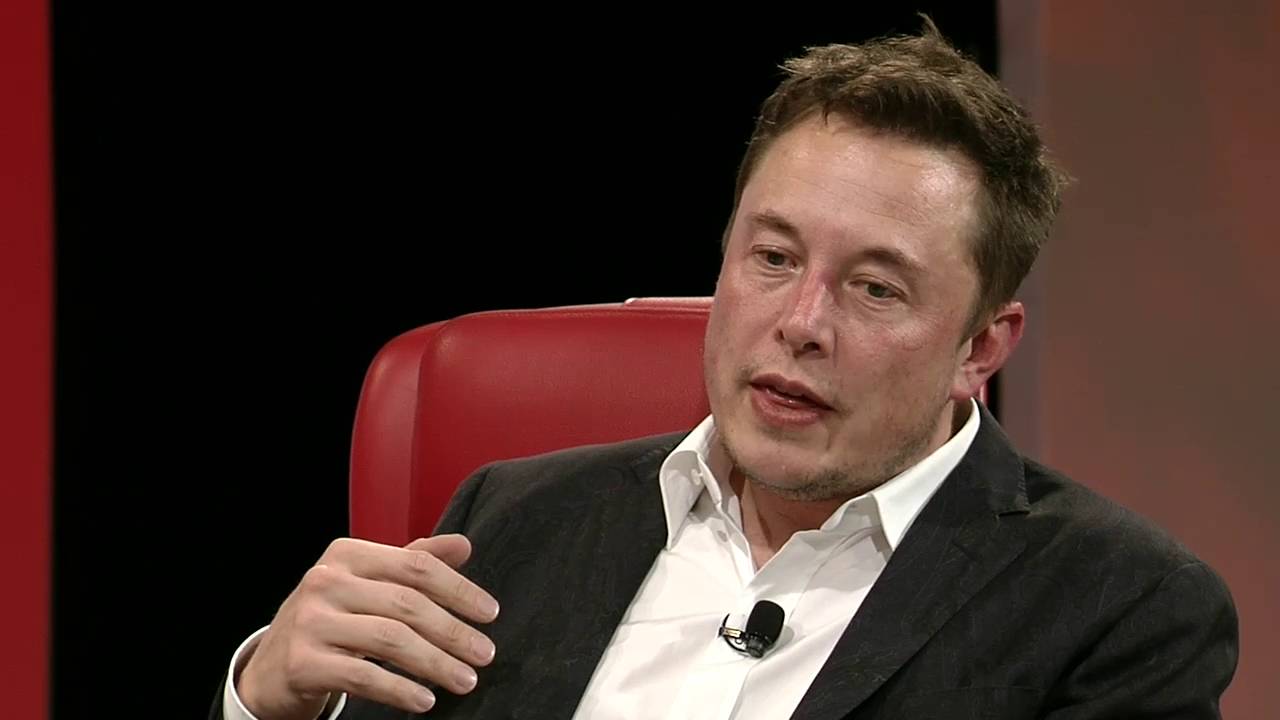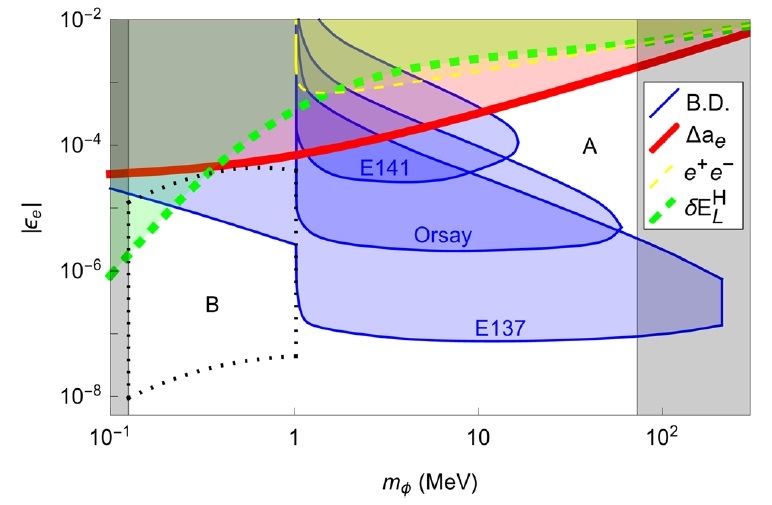Page 10883
Sep 8, 2016
Your Next Phone Could Have Quantum Security
Posted by Karen Hurst in categories: computing, mobile phones, quantum physics, security
As I mentioned 4 months ago when an article came out stating that this type of concept of a scalable quantum chip was at least 15 years away was bunk; this is again one more example where contributors really need to do their homework and make sure they are speaking to the real folks on the frontlines of QC.
Quantum-based random number generators are now small enough that they could fit in mobile devices.
Sep 8, 2016
Hypothetical new particle could solve two major problems in particle physics
Posted by Andreas Matt in category: particle physics
(Phys.org)—Although the Large Hadron Collider’s enormous 13 TeV energy is more than sufficient to detect many particles that theorists have predicted to exist, no new particles have been discovered since the Higgs boson in 2012. While the absence of new particles is informative in itself, many physicists are still yearning for some hint of “new physics,” or physics beyond the standard model.
In a new paper published in Physical Review Letters, physicists Yu-Sheng Liu, David McKeen, and Gerald A. Miller at the University of Washington in Seattle have hypothesized the existence of a new particle that looks very enticing because it could simultaneously solve two important problems: the proton radius puzzle and a discrepancy in muon anomalous magnetic moment measurements that differ significantly from standard model predictions.
“The new particle can account for two seemingly unrelated problems,” Miller told Phys.org. “We also point out several experiments that can further test our hypothesis.”
Continue reading “Hypothetical new particle could solve two major problems in particle physics” »
Forget what you learned about humans having five senses. That goes double for non-human animals.
Sep 8, 2016
Growing up in Generation AI
Posted by Carse Peel in categories: computing, economics, robotics/AI
Imagine a five-year-old watching Mum talking to Siri, and Dad talking to Alexa, on a daily basis — what must she think of such interactions? Children nowadays witness computers that seem like they have a mind of their own — and even a personality with which to engage. It can be taken for granted that their perception of machines, and thus of the world itself, differs a lot from our own.
Artificial intelligence is one of the most promising areas of tech today, if not even the one that is likely to entail the most striking changes in our way of living, the way our economy works and how society functions. Thanks to enormous amounts of data, coupled with compute power to analyze it, technology companies are making strides in AI that resembles something of a gold rush.
New approaches, including use of deep neural networks, have led to groundbreaking achievements in AI, some of which weren’t predicted to happen for another decade. Google defeating the world champion at the ancient game of Go is just one prominent example. Many more are to be expected, including advances in deep learning combined with reasoning and planning — or even emulating creativity and artwork.
Sep 8, 2016
Elon Musk is Looking to Kickstart Transhuman Evolution With “Brain Hacking” Tech
Posted by Carse Peel in categories: Elon Musk, evolution, habitats, neuroscience, robotics/AI, singularity, sustainability, transhumanism

Elon Musk has recently hinted that he may be working on a “neural lace,” a mesh of electronics that will allow AI and the brain to work together. This could help human brains keep up with future enhancements in AI.
There’s no doubt that Elon Musk is one busy individual. When not playing on the Tesla factory floor, he may be bringing electric roofs to electric vehicles, or dreaming up the Hyperloop, or toying with the future of AI.
Sep 8, 2016
Venus Before Mars? The Case For Real Time TeleRobotics From Venus Orbit
Posted by Carse Peel in categories: robotics/AI, space
The conjunction of Venus and Jupiter just before dawn over the southeastern Caspian sea. Credit: Babak A. Tafreshi (TWAN) http://twanight.org/
Aside from the attention it receives around one of its rare solar transits, Venus hardly makes headlines.
But before our warming sun turned Venus into a poster child for the dangers of a runaway greenhouse, our closest planetary neighbor may have once had oceans capable of harboring complex life.
Continue reading “Venus Before Mars? The Case For Real Time TeleRobotics From Venus Orbit” »
Sep 8, 2016
Building a stairway to the singularity
Posted by Carse Peel in categories: computing, robotics/AI, singularity
A computer’s victory over a human go master this past March reminds us of the pending “singularity” — the rapidly approaching moment in time when artificial intelligence overtakes human intelligence. Machines will learn, and we won’t be their teachers. Are we prepared for it? Can we prepare for it?
We’d better. Many futurists declare it inevitable, probably within a generation, maybe less. Shukan Shincho magazine discusses some hypothetical implications in its Aug. 25 edition. Even the least of them are shocking. For example, in 2045 a computer with the combined intellectual power of the entire human race would cost $100. In short, it’ll be no big deal. What will be a big deal? Should we shudder at the thought, or rejoice?
Francis Bacon (1561−1626) is generally acknowledged as the grandfather of modern science. “Nature, to be commanded, must be obeyed,” he wrote. His fictional “New Atlantis” was a utopia ruled by scientists who, having admitted their ignorance and purged themselves of illusory knowledge, experimented, observed and slowly built up from scratch an ever-expanding store of “true” knowledge — armed with which they “commanded” nature to outgrow her destructive caprices and ease mankind’s lot.
Sep 8, 2016
“Head-Transplanting” And “Mind-Uploading:” Philosophical Implications And Potential Social Consequences of Two Medico-Scientific Utopias
Posted by Carse Peel in categories: biotech/medical, computing, health, neuroscience
Written by ROLAND BENEDIKTER, KATJA SIEPMANN, ALEXANDER REYMANN
ABSTRACT. This article discusses the philosophical implications and potential social consequences of two experimental – and at the present moment still widely speculative – topics at the intersection between scientific and medical advances, the human body, the human mind, and the globalized health care sector. Head-Transplanting is a chirurgical endeavor envisaged by the HEAVEN project announced to be practically implemented around 2017 and to be available for routine-use around the mid-2020s by a group of internationally as prominent as disputed transplant surgeons. Mind-Uploading is a procedure currently in the first stages of development to create artificial representations of the human brain and its processes in computers and on the internet.
Sep 8, 2016
Genetic “extinction” technology rejected
Posted by Carse Peel in categories: bioengineering, biological, existential risks, genetics, government
OAHU, HAWAI’I — As thousands of government representatives and conservationists convene in Oahu this week for the 2016 World Conservation Congress, international conservation and environmental leaders are raising awareness about the potentially dangerous use of gene drives — a controversial new synthetic biology technology intended to deliberately cause targeted species to become extinct.
Members of the International Union for the Conservation of Nature (IUCN), including NGOs, government representatives, and scientific and academic institutions, overwhelmingly voted to adopt a de facto moratorium on supporting or endorsing research into gene drives for conservation or other purposes until the IUCN has fully assessed their impacts. News of the August 26 digital vote comes as an important open letter to the group is being delivered.
Scientists and environmental experts and organizations from around the globe have advocated for a halt to proposals for the use of gene drive technologies in conservation. Announced today, a long list of environmental leaders, including Dr. Jane Goodall, DBE, genetics professor and broadcaster Dr. David Suzuki, Dr. Fritjof Capra, entomologist Dr. Angelika Hilbeck, Indian environmental activist Dr. Vandana Shiva and organic pioneer and biologist Nell Newman, have lent their support to the open letter: “A Call for Conservation with a Conscience: No Place for Gene Drives in Conservation.” The letter states, in part: “Gene drives, which have not been tested for unintended consequences, nor fully evaluated for ethical and social impacts, should not be promoted as conservation tools.”
Continue reading “Genetic ‘extinction’ technology rejected” »
















